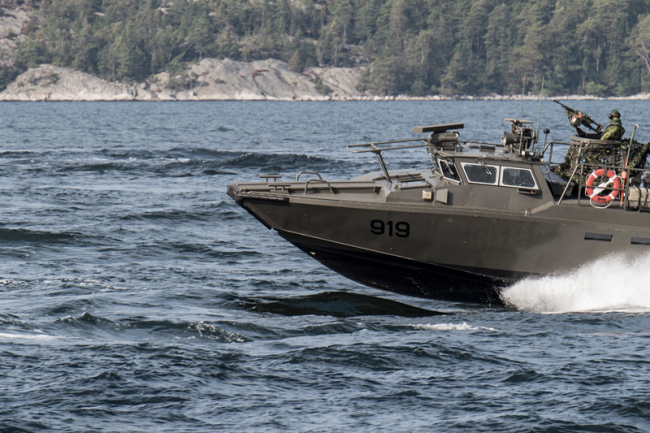Does increased preparedness with cannons and ammunition raise the likelihood of war?
2025-08-25What does it actually mean for a country to overinvest in military preparedness – and how can we tell when the limit has been reached? In a recent research article, Mats Ekman, senior lecturer in economics at Karlstad Business School, presents an argument suggesting that war is a rational, but devastating, decision made by political leaders to monitor each other’s overinvestments.
– I apply an economic perspective and discuss the risk that preparedness may become a public bad – something that could provoke war rather than prevent it, says Mats Ekman.
How do you define overinvestment in military preparedness – and are there specific criteria that must be met for it to be considered overinvestment?
– Politicians, like everyone else, have limited financial resources. Investing in preparedness, therefore comes at the expense of other needs. If it is politically appealing to maintain lower levels of preparedness, then the country is overinvested. Military preparedness is not just about cannons and ammunition, but also involves other resources – including personnel that could be used in war. If many resources remain unused, this means greater preparedness in the sense that their best alternative use is worth less. This lowers the cost of war.
Sweden joined NATO in 2024 – are we over- or underinvested?
– To the extent that preparedness increased as a result of the membership and the formally adopted high defense spending target, the article’s argument suggests that the likelihood of war must also increase. However, I wouldn’t dare to speculate on how high that likelihood might be. If the politicians’ optimum at the moment is to maintain a higher level of preparedness than before, it’s also possible that Sweden is underinvested. But if disarmament proves difficult, the argument suggests there is still a risk that the build-up will become problematic, sooner or later. As such, the argument claims that preparedness is what economists call a “public bad” – that is, something harmful that individual citizens cannot escape from.
Are there any historical examples that you could mention in connection with your research?
– The article presents a theory about the circumstances under which it is rational for politicians to declare war, despite the death and destruction that war entails (“rational” does not mean “good”). In other words, it’s not an empirical article. However, the argument naturally implies a number of things that could, in principle, be tested empirically – for example, that war should not occur between three or more parties (X at war with Y and Z, Y at war with X and Z, and Z at war with X and Y), and that the risk of war increases in times of economic recession.
How did you conduct your research?
– The article is applied theory, so I haven’t collected any empirical data. I’ve used economic methodology, which I regard as rational choice. People do the best they can, given the options and constraints they have.





